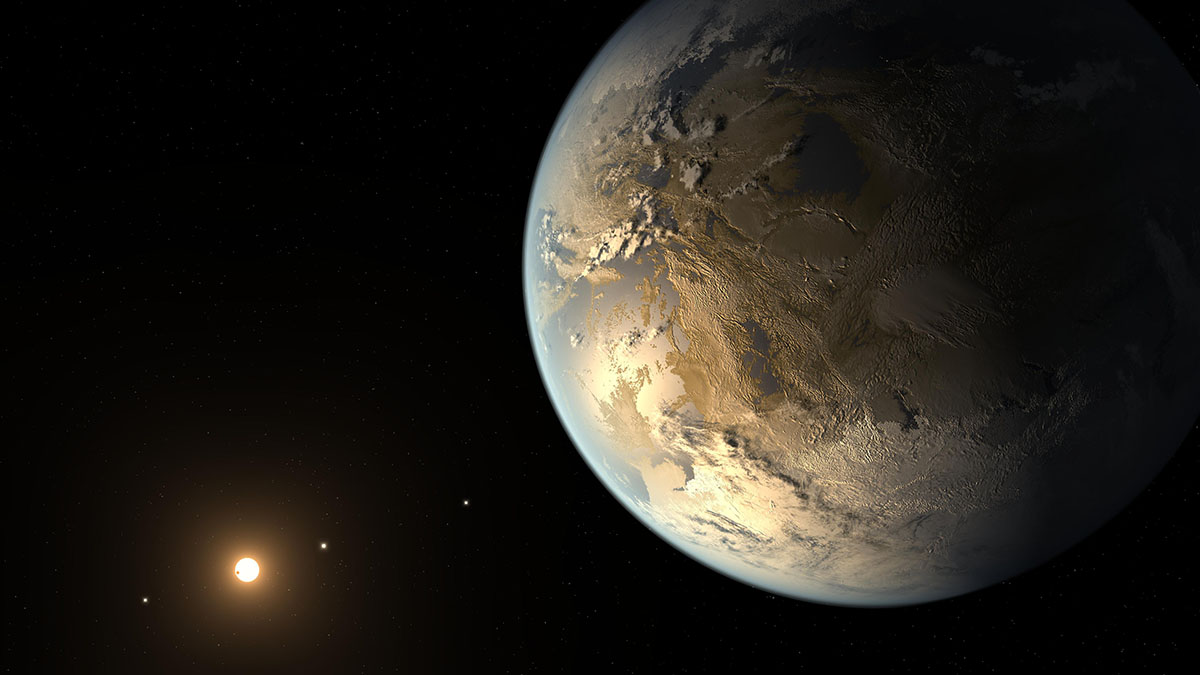Are there other planets out there like our own? If so, where are they?
It’s these questions that fuel the research of Dr. Peter Plavchan, assistant professor of astronomy at Missouri State University. Plavchan recently received funding from NASA to investigate the scientific feasibility of a space mission to search for exoplanets, or planets like ours orbiting nearby stars.
“The goal of the mission is to detect exoplanets that are the same mass as the Earth and that are orbiting at the same distance from their star as ours does,” said Plavchan, who will work with members of NASA’s Jet Propulsion Laboratory on this project. “We already know Earth-sized exoplanets are common in our universe, but the ones we have found tend to be too hot from orbiting too close to their stars, or orbit dimmer red stars that are different from our Sun.”
The project, known as EarthFinder, will use a space telescope to find these exoplanets.
“The space telescope will have a mirror about 3 to 5 feet in diameter. The light from that telescope will be fed into a spectrograph, which basically spreads the light out into its constituent colors, like a rainbow,” said Plavchan. “By spreading the light out into its colors, one of the things we’ll be able to take advantage of is the Doppler Effect to watch nearby stars wobble in response to the exoplanets orbiting them.”
The Doppler Effect
The Doppler Effect technique measures shifts in color to determine the speed of a star. If you’ve ever heard a siren on a car speeding by, you can hear the change in pitch of the sound waves as it passes. The same thing happens to light.
“When a star is moving toward you, the light is ever so slightly bluer, and when a star is moving away from you, that light is ever so slightly redder,” said Plavchan. “A spectrograph allows us to measure that shift in the color of star light. Thanks to special relativity, by measuring that shift in the color we actually get the speed of the star, toward or away from us. If the speed of the star changes, that tells us that something is gravitationally tugging on the star.”
Moving forward
The project will answer that age-old question: Are there other Earths? It will also tell us more about our own planet as well as others.
“This mission could potentially help us better understand our own solar system,” said Dr. Peter Gao, NASA postdoctoral program fellow and future 51 Pegasi b prize postdoctoral fellow at the University of California at Berkeley. “By studying the exoplanets of other systems, we could learn how ours were formed and how it compares to other planets.”
Plavchan’s team will develop the mission concept during the next 18 months. The team hopes to demonstrate that using the Doppler Effect via a space telescope will enable scientists to discover more Earth-like planets.
For more information, contact Plavchan at 417-836-5609.

